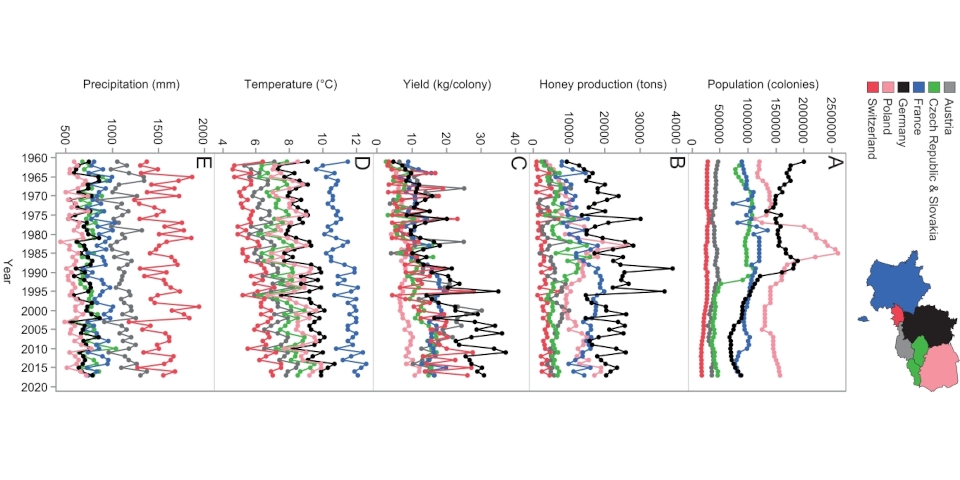Abstract
Bees are essential pollinators and their protection is relevant to secure biodiversity and agricultural production. MonViA-project members and partners collaborate in monitoring projects to develop effective policies to support biodiversity in Germany. In the current case-study, the impact of climate on honey bee population performance was assessed. We modeled year-to-year Central-European honey yield changes and found + 1°C temperature change to stimulate annual honey yield by + 0.9 kg per colony, and + 100 mm precipitation to reduce honey yields – 0.4 kg. In regard to different climate change scenarios for Germany, our modelling suggests a potential + 0.4 to + 0.8 kg honey yield gain per colony in 2050, as compared to 2020. We conclude that the German honey bee population may benefit by rising temperatures. We discuss how bee performance is linked to weather and how our analysis would be strengthened by including more data, with a higher temporal and spatial resolution, i.e., intra-annually and -nationally. Pollinator trend monitoring should be extended with analyses that include e.g., extreme weather conditions, disease loads, availability of floral resource, beekeeping practice, land use and landscape structure.










